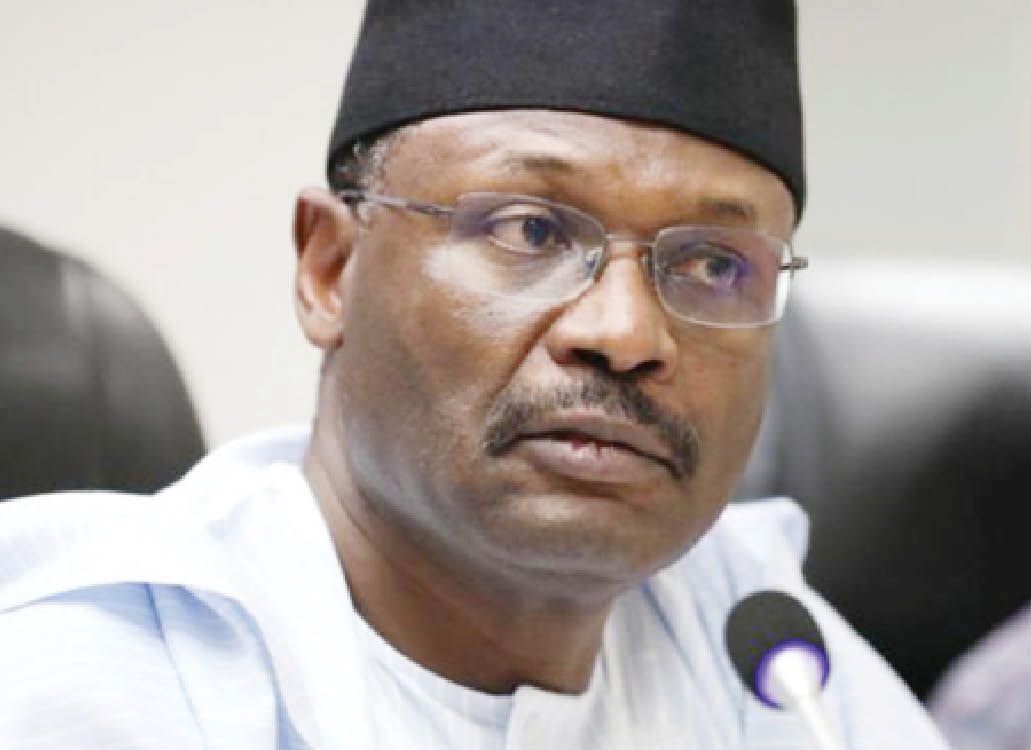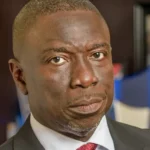The impact of the February 6, 2020, deregistration of 74 political parties by the Independent National Electoral Commission (INEC) has refused to fizzle out as the commission and the affected parties have drawn a battle line after the Court of Appeal gave opposing rulings on the matter.
The Chairman of INEC, Prof. Mahmood Yakubu, who announced the deregistration of the political parties at a press briefing on the status of political parties and the conduct of some off-season and by-elections, also said 18 parties survived the commission’s hammer.
Appeal Court Upholds Deregisteration of HDP, Reaffirms INEC’s Power To Deregister Political Parties
INEC backs REC as PDP maintains there was no meeting between Obaseki, Igini
Prof. Yakubu explained that, “In addition to the extant provision for the registration of political parties, the Fourth Alteration to the Constitution (Section 225A) empowers the commission to deregister political parties.”
Parties sue INEC
Following INEC’s action, no fewer than 32 of the affected parties approached the Federal High Court seeking an order to set aside INEC’s decision to deregister the 74 political parties that failed to make constitutional requirements to function as political parties.
However, the court refused the prayers of the plaintiffs and upheld the constitutional power of INEC to deregister political parties and held that the power was sacrosanct.
In her judgment, Justice Anwuli Chikere held that Section 225(a) of the constitution gave INEC the power to deregister parties that failed to comply with the provisions of the constitution.
Earlier, Justice Taiwo Taiwo of the same court in Abuja upheld the same power of INEC.
Appeal court faults INEC
However, the Court of Appeal condemned the lack of courage by the trial courts to stand against tyranny and oppression.
In a unanimous decision, a panel of Justices of the Court of Appeal declared as illegal, unconstitutional and void, the decision of INEC in deregistering political parties while the matter was in court.
The Court of Appeal stressed the need for the executive arm of government to follow laid down procedures in discharging its constitutional duties.
Reactions trail appeal court’s decision
Speaking immediately after the ruling, the Coalition of United Political Parties (CUPP) urged INEC to adjust its timetables for the Edo and Ondo governorship elections following the appeal court judgment that upturned the deregistration of 23 political parties that were parties in the suit.
The coalition, in a statement by its Chairman, Media Committee, Chukwudi Ezeobika, said the adjustment was necessary following the unanimous decision of the panel of Justices of the Court of Appeal which declared the deregistration of political parties by INEC as illegal and unconstitutional.
Ezeobika said it would be a waste of effort for INEC to proceed with the scheduled elections in the two states without giving opportunity to all necessary parties to field candidates for the elections.
Second appeal court ruling backing INEC
Before the Court of Appeal ruling being celebrated by the deregistered parties, the court, on July 29, 2020, in Abuja, held that INEC had the constitutional power to deregister moribund political parties.
In a decision delivered by Justice Mohammed Idris; with Justices Yargata Nimpar and Peter Ige concurring, the appellate court upheld the decision of Justice Taiwo Taiwo of the Federal High Court, Abuja.
The lower court had held that Section 225A (b) and (C) of the 1999 Constitution (Fourth Alteration No. 9) Act 2017 empowered INEC to deregister non-performing political parties, but dissatisfied with the decision, the appellant, the National Unity Party (NUP), approached the Court of Appeal for redress.
Formulating two grounds of appeal, the appellant asked the Court of Appeal to hold that it placed sufficient material facts and evidence before the lower court to warrant it to nullify its deregistration by INEC.
NUP argued that INEC erred in law by deregistering it when it was contesting elections at the local level and asked the court to hold that it was a miscarriage of justice.
The party further said the provisions of Section 225 A (b) and (C) of the 1999 Constitution (Fourth Alteration No. 9) Act 2017 did not catch up with it because it was awaiting the conduct of elections, adding that a party needed not to fulfill all the conditions stated there.
But in resolving the issue in favour of INEC, Justice Idris held that the lower court was right in deregistering the appellant.
Justice Idris ruled that, “It is, therefore, my well-considered view that the learned trial judge was right in his interpretation of the said provisions and has therefore occasioned no miscarriage of justice to the appellant.”
INEC heads to Supreme Court
INEC said it received the judgement of the Court of Appeal delivered earlier in an appeal filed by the Advanced Congress of Democrats (ACD) and 22 others relating to their deregistration.
The commission said it would challenge at the Supreme Court the judgement by the Court of Appeal which held that the deregistration of ACD and 22 others was ultra vires the powers of the commission and ordered it to reinstate them.
INEC’s National Commissioner and Chairman, Information and Voter Education Committee (IVEC), Festus Okoye, said that on July 29, 2020, the Court of Appeal, Abuja Judicial Division, in an appeal filed by NUP, affirmed the power of INEC to deregister political parties that failed to meet the constitutional threshold in Section 225A.
Okoye said dissatisfied with the judgment, NUP lodged an appeal which was pending before the Supreme Court.
He further said, “The commission is, therefore, faced with two conflicting judgements from the Court of Appeal: one affirming the powers of the commission to deregister political parties and the other setting aside the deregistration of ACD and 22 others.”
Other fallouts
Following the Court of Appeal ruling setting aside the deregistration of some political parties, the Inter Inter-Party Advisory Council (IPAC) dissolved its Interim National Committee (INC) led by Leonard Ezenwa, who is also the National Chairman of the African Action Congress (AAC).
The President of IPAC, High Chief Peter Ameh, at a news conference in Abuja, equally announced the members of the newly constituted electoral committee that would conduct election to usher in new executives of the council.
Chief Ameh, who is the also the National Chairman of the Peoples Progressives Alliance (PPA), while announcing the dissolution of the Ezenwa-led interim executive, said the leadership of IPAC could only be attained through elections and that his tenure would elapse on September 5, when a new Exco would emerge.
He listed members of the IPAC 2020 electoral commission as the National Chairmen of Labour Party (LP), Abdulkadir Salaam; Advanced Congress of Democrats (ACD), Alhaji Musa Taka; Socialist Party of Nigeria (SPN), Bamigboye Abiodun; Peoples Coalition Party (PCP), Don Harmattan; and Alliance of Social Democrats (ASD), Dr. Emeka Okengwu.
Lawyers react
Meanwhile, some lawyers have explained that the judgement of the Court of Appeal in Abuja which upturned the judgement affirming INEC’s deregistration of political parties would not affect the upcoming governorship election in Edo State.
Dayo Akinlaja (SAN) said since the situation was that INEC had hinted that it would appeal against the judgment of the Court of Appeal, the legitimacy or otherwise of the deregistration was not clear at the moment, adding that, “On that standpoint, there is nothing to worry about vis-a-vis the Ondo State governorship election.
“Besides, at the time of sponsorship of candidates, I do not think that the affected political parties indicated that they wanted to sponsor candidates and were prevented from doing so.”
Another lawyer, Hameed Ajibola Jimoh, said if the court’s decision did not compel INEC to consider those political parties for the upcoming elections in the state “then they are likely to lose any election in Edo State until next elections.”
Jimoh added that although he had not read the judgment, but if it did not expressly say so, “They may remain registered but may not present any candidate for election in Edo State until next elections.”
INEC too
Reacting to the development, the spokesperson of the INEC Chairman, Mr. Rotimi Lawrence Oyekanmi, said the Court of Appeal judgment reversing the deregistration of some political parties would not affect the September 19 and October 10, 2020, governorship elections in Edo and Ondo states respectively.
Mr. Oyekanmi said the commission would appeal the judgment, and that there were six judgments on the deregistration of political parties and five of them were in favour of the commission.
He explained that, “The election will go on as scheduled; the judgment can’t change anything. Since none of them (affected parties) conducted primaries before the closing of the window, they cannot take part in the election and that cannot affect INEC’s preparation.”
He further said INEC’s monitoring of the party primaries was one of the requirements for participation in elections and that since none of the affected parties participated before the closing of the window for the primaries, they could not take part and “that cannot affect INEC’s preparation.”
He said the judgement could not have effect on the preparation for the Ondo governorship election because the commission was on number six out of the 14 items on its guidelines for the election.
He added that INEC’s actions were in the interest of the nation and democratic development.
He faulted the call for the adjustment of the timetables for the Edo and Ondo governorship elections, saying there was nowhere that the Court of Appeal ruling or any other judgement asked INEC to do such.
Party chairmen adamant
However, the President of IPAC and National Chairman of PPA, High Chief Peter Ameh, said INEC did not have option but to obey the declarative judgement of the Court of Appeal.
Chief Ahmeh said, “So, as it stands, in the face of the law, we were never even deregistered in the first place, and it is not for us to bear the brunt of disenfranchisement based on INEC’s inability to carry out the processes that are right.
“So, we should not bear the consequences of INEC’s shortcomings.
“The issue of the timetable is not even of INEC to decide; it is a constitutional matter.
“Let it be clear that we did not go to court after we were deregistered; we went to court on April 4, 2019, seeking the interpretation of Section 225(A) in line with Section 40 of the constitution guaranteeing the right of Nigerians to belong to any lawful association of their choice.

 Join Daily Trust WhatsApp Community For Quick Access To News and Happenings Around You.
Join Daily Trust WhatsApp Community For Quick Access To News and Happenings Around You.


